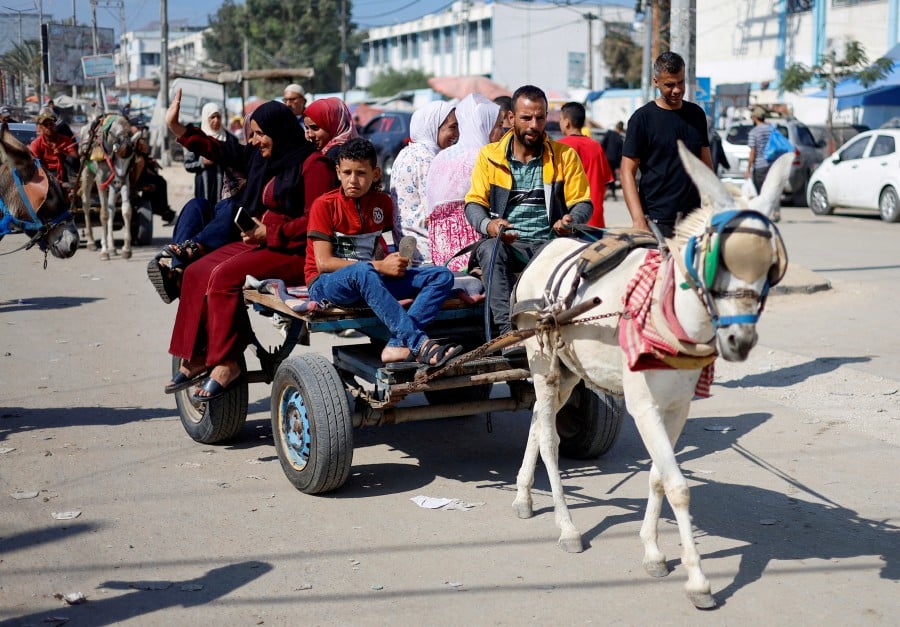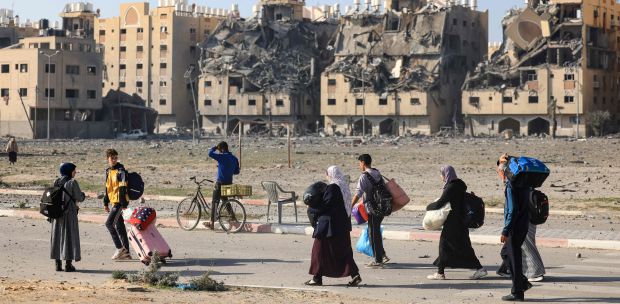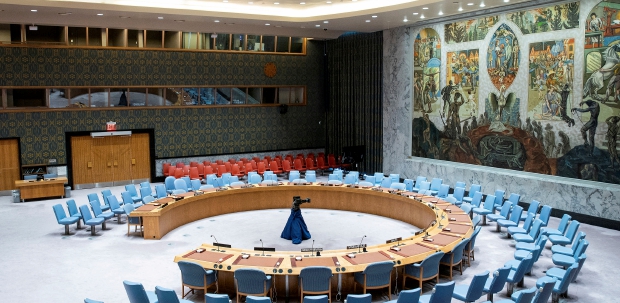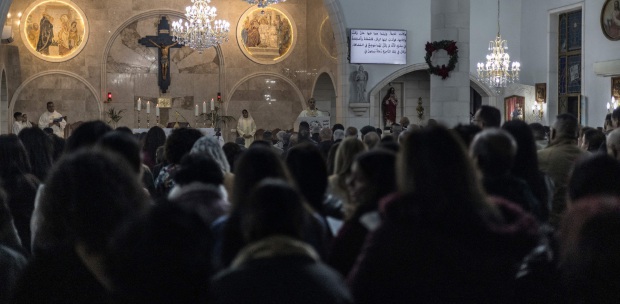The crisis in Gaza did not start on Oct 7, 2023. It is a plight that has gone on for decades, and its history is mired in varied definitions, narratives, and labels.
For a bigger picture, it would be wise to delve into the past, but our immediate concern is a crisis of conviction. What is meant here is the ease to which opinions are conjured, and shared as if such thoughts are absolute truths.
With the ongoing events, we are bombarded with images of chaos and destruction, inciting within us a reaction of a visceral kind.
Within the field of media studies, propaganda can be understood as the dissemination of information — arguments, half-truths, rumours, or even outright lies — to influence public opinion.
Mass media does its part in the dissemination of such information to influence a polity's attitude, as well as belief to either agree or disagree with a particular stance.
In the current context, we observe outlandish claims made by journalist Nicole Zedek, who works for the 24-hour Israeli cable news channel i24, that Hamas had beheaded 40 babies in its violent attack on a kibbutz in southern Israel.
(https://blackstarnews.com/unconfirmed-beheaded-babies-report-helped-just..., https://edition.cnn.com/2023/10/12/middleeast/israel-hamasbeheading-clai...).
We also understand that propaganda works both ways and can be used as a tool to galvanise support for Hamas (a polarising entity, with some considering them to be a bona fide terrorist group, while others see them as freedom fighters).
At this juncture, there is no need to be apologetic for what one professes.
If we are honest with ourselves, the veracity of a particular event can be seen with our own conscience. It need not be undermined by the 'guilt-tripping' evident in many advertisements carried out by the Israeli government (https://www.aspentimes.com/opinion/chaffey-standwith-israel-or-stand-wit..., https://www.businessinsider.com/israel-youtube-x-advertising-pr-offensiv...), or claims that the Oct 7 events were 'unprecedented'.
Now, isn't the annihilation of Gaza a problem that finds its roots in the concept of nation-states? Which is an offshoot of colonialism? Which ran on ethnocentrism? Which is made permissible when one views himself to be better than others?
There is no doubt that deceit is being peddled by many media houses in the West. With this in mind, we observe comments made by Abdal Hakim Murad (of Cambridge Muslim College) in his Commentary on the Eleventh Contentions, that human perfection is found in prophecy, which cannot lie and instead reassures us with consistent trust and openness; corruption finds its zenith in the Devil, the insidious trickster, who "promises them and gives them hope but promises them only delusion." (Quran 4:120; https://quran.com/4/120).
As such, the rigid heart does not wish to change or to acknowledge an error or weakness. It thus attempts — with all its resources — to adjust reality, and not itself. The lie is perpetuated due to sheer arrogance, be it by the individual and/or the collective.
Isn't this what is put on display today? Genocide is now termed "self-defence". Forcing ourselves to speak truthfully allows a heightened sense of self-awareness, which in turn, makes us more cognisant of how our words and actions have an impac.
Think about it. If we are vigilant of a truth, any risk of breaking it would entail a feeling of disappointment. Therefore, to speak truthfully is to preserve the self from deceit, which takes away the right of another to the truth of a specific event.
We've heard that honesty is the best policy. If only the Western powers (read: United Nations) were honest about their policies of encroachment and pillaging, rather than hide behind the façade of human rights.
We are well aware that 'Western powers' is a broad term, but to say 'Global North' is to apply a synonym to which we all know the meaning.
Within narratives played out by the media, we see an obvious shift from ontological questions to epistemic ones. This is also understood as the change from questions about the nature of the world to questions about the nature of intelligence, and the relation of intelligence to the world.
Freedom remains an illusion when rights are trapped in a charter. Recognition is the first stage towards the acquisition of a primary or basic concept.
It is, thus, the most fundamental of all intellectual processes. The inability to recognise and make distinctions will inevitably lead to arbitrary approaches to the lives of human beings.
If we are quick to undermine that which cannot be observed with the naked eye, or to fall trap to Scientism, we become susceptible to the dictates of the material. It is this sort of materialism which gives rise to land-grabbing and control of resources.
If the West is serious about alleviating the plight of those suffering the world over, the best place to start is Gaza.
* The writer is a former research assistant for the Political Futures Experts Group at the International Institute of Islamic Thought and Civilisation





